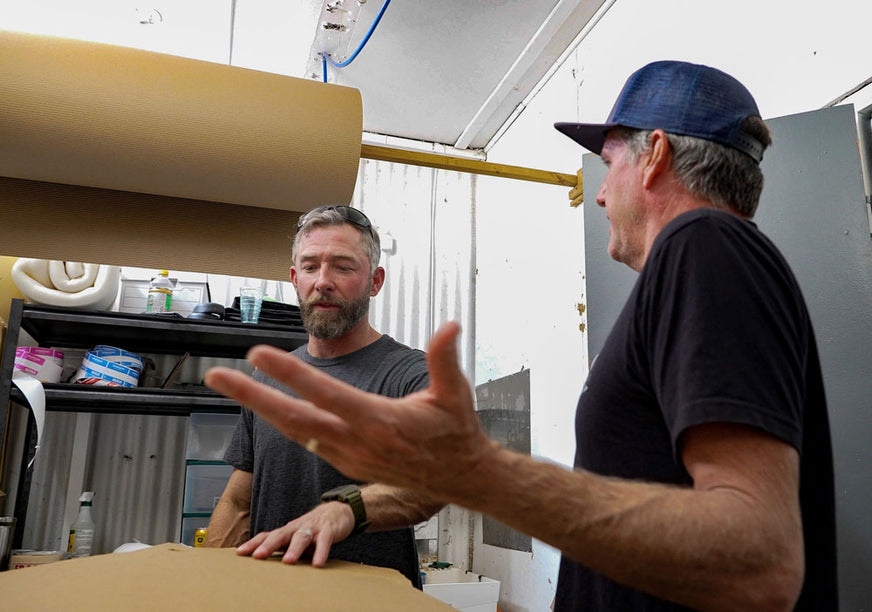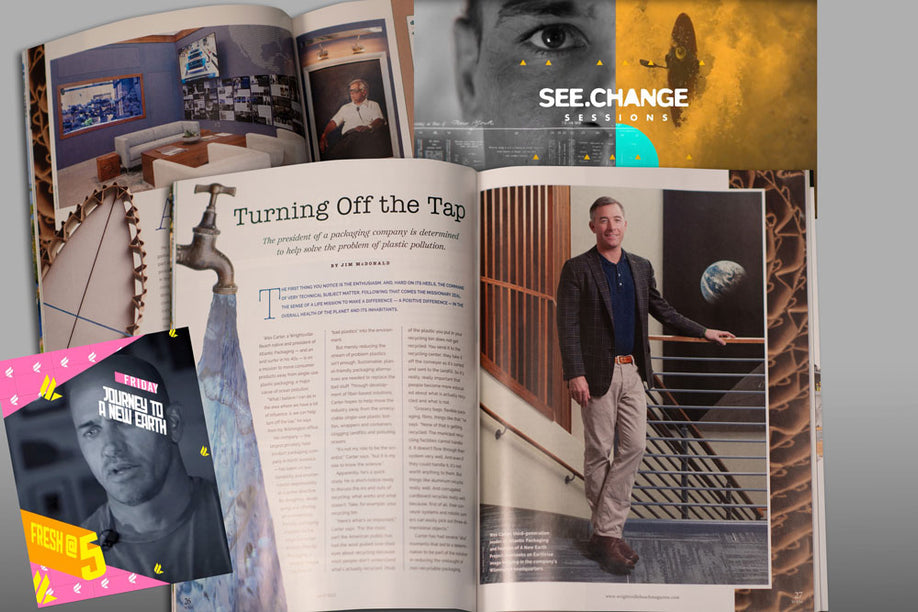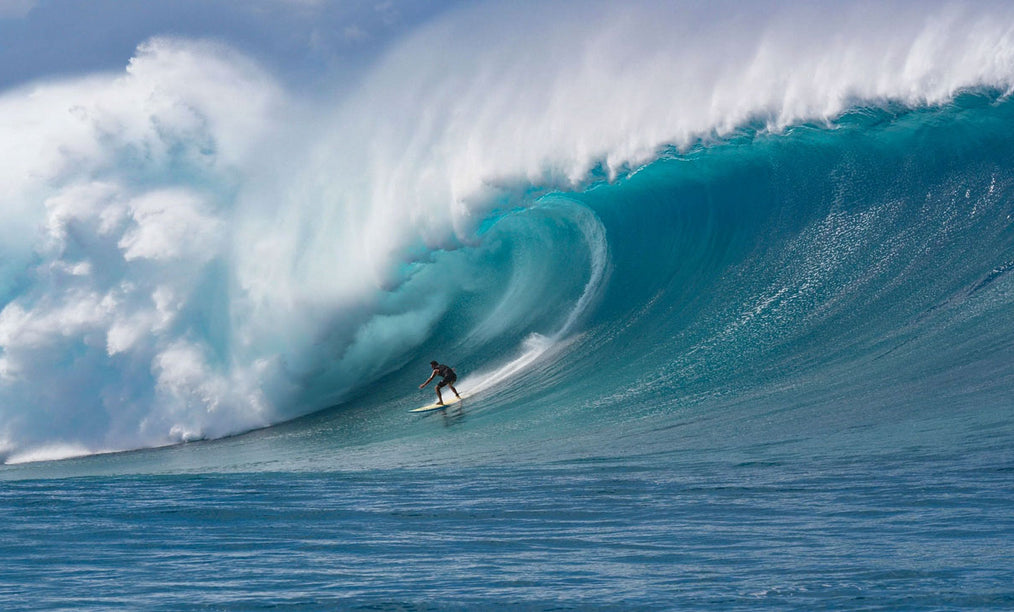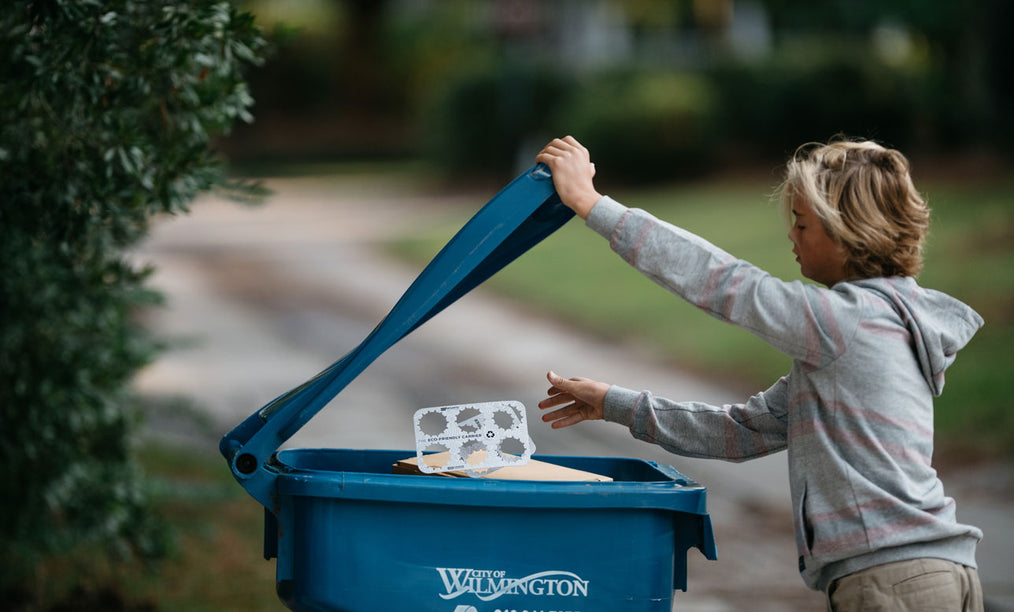For every person on earth today there's a ton of plastic waste that's been created. Sadly, that waste will outlast most of us for hundreds of years. But what's worse, plastic production is rising exponentially, because it's woven its way into the very fabric of modern life.
As a result, our world is grappling with overflowing landfills and polluted oceans.
In order to curb this disaster, we must first identify the major players we're empowering to do this. Of course, there's not an industry out there that's not using plastics, but if we can collectively put some pressure on the following areas, we can make a significant dent.

1. Packaging: As the kingpin of plastic consumption, the packaging industry spews out single-use plastics that live briefly in our homes but last for centuries in our environment. Those convenient plastic bags, water bottles, and food wrappers? They constitute a monumental portion of our plastic footprint (up to 35% by the most recent estimates).
2. Textiles: Yup, this is our clothing. Our trendy athleisure wear, made of synthetic fibers like polyester or nylon, can shed tiny plastic particles during a wash, introducing microplastics to waterways and ultimately the food chain. Same goes for those surf trunks, that winter jacket, and those shoes. Your closet is an environmental disaster.
3. Fishing: The oceans bear the brunt of our plastic addiction. "Ghost nets," or abandoned fishing gear, drift ominously, ensnaring marine life and disrupting delicate ecosystems. It's estimated that more than 30% of the plastic pollution in the Great Pacific Garbage Patch is from fishing nets. Given we're already overfishing our oceans to death, we may want to get behind more aggressive legislation aimed at protecting our oceans.
4. Agriculture & Construction: From boosting crop yields with plastic mulch in farms to using plastic in piping and insulation in buildings, these sectors significantly contribute to the plastic waste load.
If we can make a dent in these four industries, we'll have learned enough to take care of the rest.
Small Steps: Everyday Actions to Curb Plastic Use
Granted, most of us can't impact these industries directly, but we can make everyday decisions that do add up. These are the essentials:
1. Opt for Natural Fabrics: When clothes shopping, lean towards natural materials like cotton or wool. They don't shed harmful microplastics when washed. And if and when you do require the nylon and polyester stuff, by the brands built to last, not the seasonal stuff.
2. Reusables are Your Best Friend: From water bottles to shopping bags, make reusables a staple in your daily routine. Not only does this cut down on waste, but it also makes economic sense.
3. Conscious Consumption: Next time you're picking a face scrub, check for microplastics. Opt for products without these harmful pollutants. Similarly, when shopping, choose products with minimal or recyclable packaging.
The Bigger Picture: Pushing for Ambitious Legislation
While personal responsibility is essential, system-wide change is crucial. As consumers, our power doesn't end with our wallets; it echoes in the halls of legislatures. To see real change we must support and advocate for ambitious legal measures, and believe it our not, there's great bipartisan support brewing. Here are some things to be heard on.
1. Comprehensive Waste Management: Countries, especially those with burgeoning middle-class populations, need efficient waste management systems to handle the growing plastic use. Extended Producer Responsibility bills in the wealthier countries can have a major impact on those. By revamping our recycling infrastructure, and forcing brands to use more earth digestible alternatives, we can move the needle.
2. Trade Regulations: Wealthier nations often export plastic waste (via the products they sell) to lower-income countries, shifting the pollution problem rather than solving it. Legislation should ensure that only nations with adequate waste management infrastructures participate in such trades.
3. Strict Monitoring of Fishing Activities: Protecting marine environments requires strict regulations on fishing methods, gear, and disposal, ensuring that what's used to capture fish doesn't end up harming marine ecosystems. Protecting territorial seas (the near-shore areas that contain most of earth's biodiversity) is a must for our survival.








